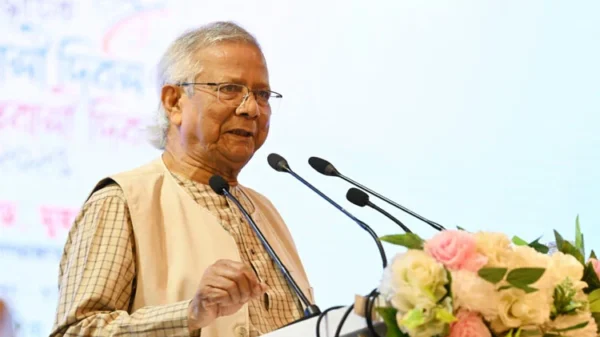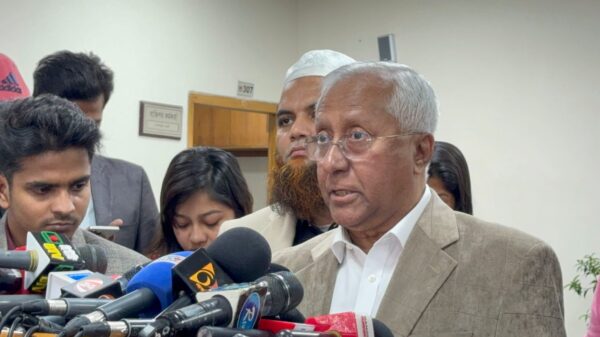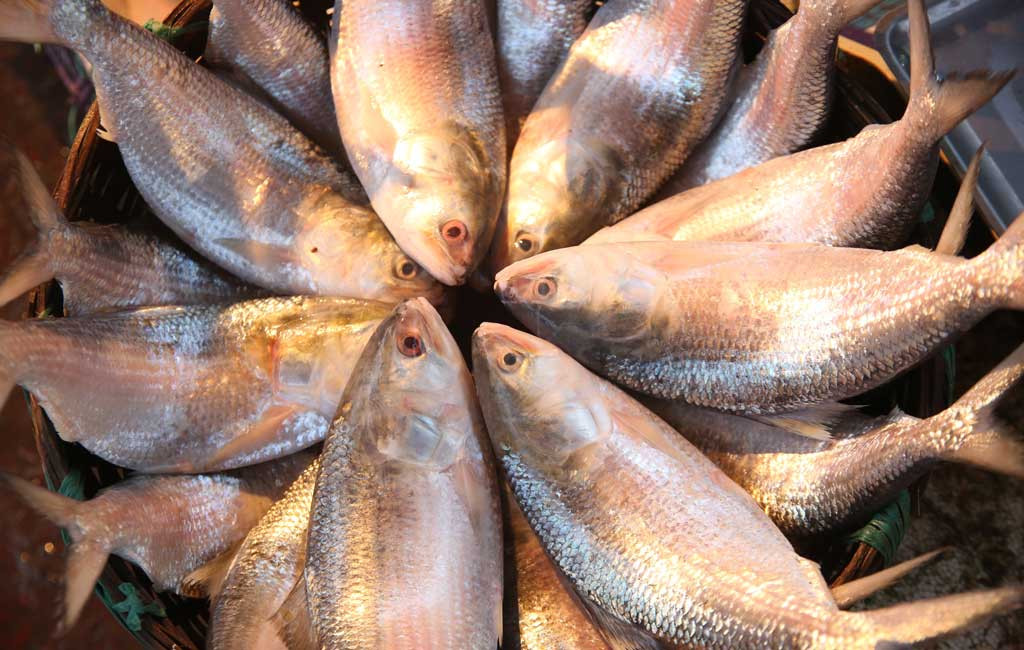Staff Reporter:
Indians in West Bengal may face a shortage of hilsa, their favourite fish, as millions gear up to celebrate the state’s biggest festival, Durga Puja, in October.
That is because Bangladesh, the world’s largest producer of the fish, has intensified its crackdown on the transportation of hilsa to neighbouring India, reinforcing a long-standing ban on exports.
The renewed effort, which came a month after a new government took office in Dhaka, is to ensure that the prized fish remains more accessible to consumers in Bangladesh, according to Farida Akhter, adviser to the Bangladesh ministry of fisheries and livestock.
“A lot of fish is (still) going from Bangladesh to India (despite the ban). This time we will not allow the hilsa to cross the border,” she told the BBC.
Hilsa is Bangladesh’s national fish but it is a luxury, affordable only for the rich and middle class; the poor can’t buy it.
“The previous government would lift the ban during the Durga Puja festival. They used to call it a gift. This time I don’t think we need to give a gift because (if we do it) our people will not be able to eat the fish while it is allowed to be exported to India in large numbers,” Ms Akhter said.
This stand marks a clear departure from deposed former prime minister Sheikh Hasina’s renowned “hilsa diplomacy” with India, where she often allowed consignments of the fish to be transported to India during the festival season.
Hasina has sent hilsa to West Bengal chief minister Mamata Banerjee on a number of occasions. Hoping to resolve a long-standing water dispute, she also gifted 30kg of hilsa to the then Indian president Pranab Mukherjee in 2017.
Hasina was removed dramatically on 5 August after weeks of student-led protests that escalated into deadly nationwide unrest. Initially expected to stay in India briefly, her attempts to secure asylum in the UK, US and UAE have so far failed.
India’s Bangladesh dilemma: What to do about Sheikh Hasina?
Her continued presence in India has also complicated Delhi’s efforts to build a strong relationship with the new interim government in Dhaka. For India, Bangladesh is a key strategic partner and ally, vital for border security, especially in its north-eastern states.
Asked whether the new interim government could have made a goodwill gesture to India by allowing supply of hilsa, Ms Akhter said: “We will have goodwill gestures in all other ways. They are our friends. But we should not do anything by depriving our people.
“The question of goodwill is separate from this.”
Bangladesh is the leading producer of hilsa (Tenualosa ilisha), a kind of species of fish related to the herring, abundant in the Bay of Bengal and also thriving in rivers.
The fish accounts for about 12% of the country’s total fish production and contributes around 1% to its GDP. Fishermen catch up to 600,000 tonnes of the fish annually, the majority of the haul coming from the sea. In 2017, hilsa was recognised as a geographical Indicator for the country.
In past years, the government permitted the export of 3,000-5,000 tonnes of hilsa annually during Durga Puja, senior fisheries official Nripendra Nath Biswas told The Daily Star newspaper.
“But considering the scarcity of fish in the country, the government has decided to impose a ban on hilsa exports this year,” he said.
But Bangladeshi media reports indicate that hilsa prices have surged in the local market despite the export ban.
A 1.5kg hilsa was selling for around Tk1,800 ($15; £11.50), 1.2kg for Tk1,600, and one kg for Tk1,500. These prices are 150-200 taka higher than last year, say traders.
Fishermen attribute the price increase to poor catches. “In the past three months, we tried to go to sea five times but had to turn back due to rough weather,” said Hossain Miah, a fisherman.
Hilsa holds an almost sacred status among Bengalis on both sides of the border, and its scarcity will frustrate many.
The fish is celebrated for its versatility, often cooked in a variety of ways such as steamed with mustard paste, which enhances its delicate flavour, or fried with a light coating of spices for a crispy texture.
Bengali-American food historian and author Chitrita Banerji is among the many writers who have raved about the fish.
“I think its enduring role as an icon of Bengali food is a combination of many elements, not the least being its physical beauty, which has led Bengali writers to describe it as the darling of the waters or a prince among fish,” she told an interviewer.
“And its tender flesh (bony though it may be), combined with an emollient texture and exquisite flavour, lends itself to an infinite variety of culinary preparations.”














































